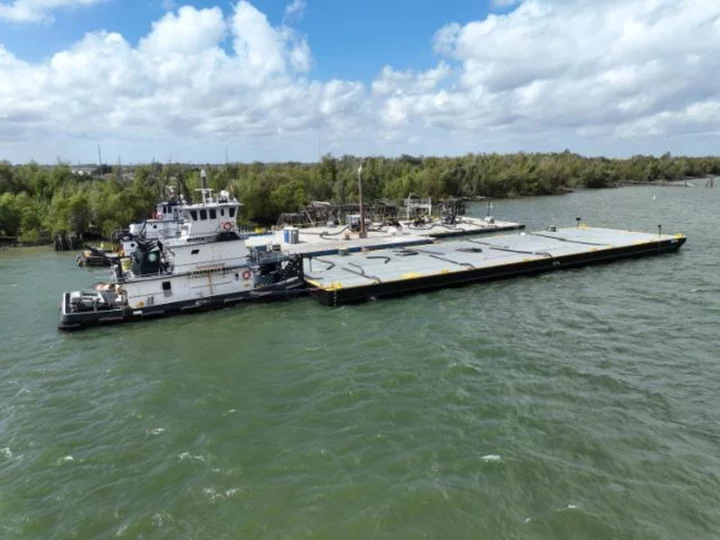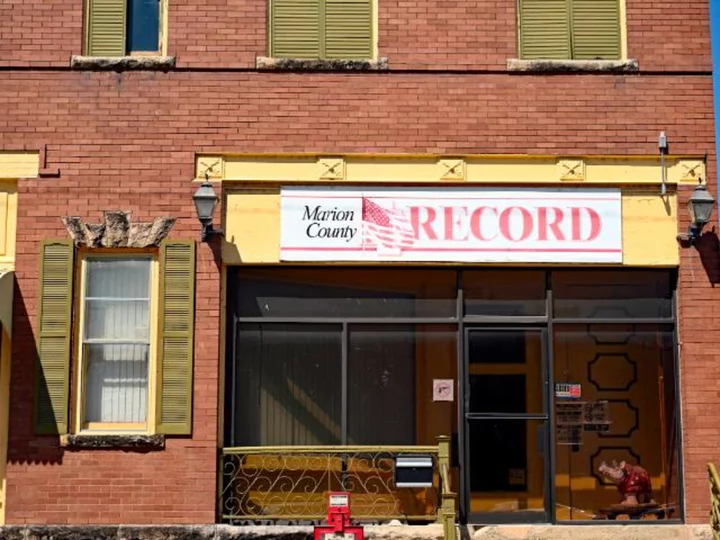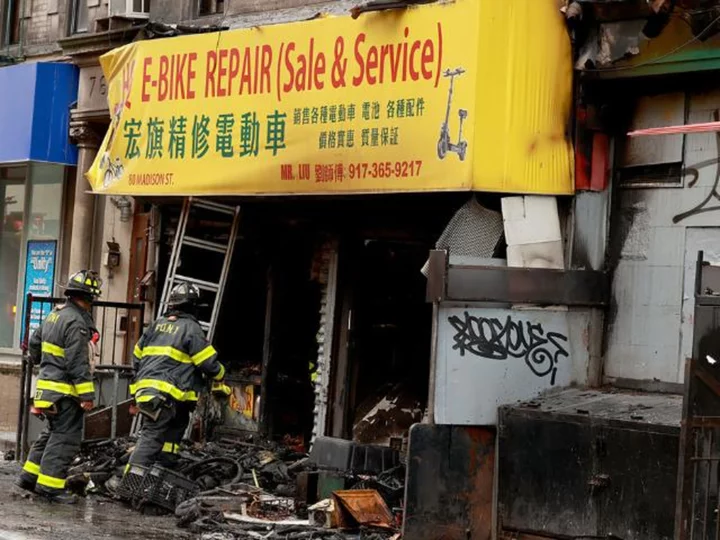Massive barges brought over a million gallons of fresh water to Plaquemines Parish, Louisiana, on Monday as the community tackles the intrusion of saltwater that's threatening drinking supplies.
The emergency transports by the Army Corps of Engineers to water treatment and pumping stations are set to continue for weeks until the flow of the Mississippi River is strong enough to push the seawater back to the Gulf of Mexico.
"Right now, we're preparing for this situation to go into about January," said Parish President Keith Hinkley. "We don't see this ending anytime soon because there's really no prediction of any kind of rain up in the upper Mississippi, the Missouri and the Ohio Basin."
Hinkley said the crisis, that's also now threatening New Orleans, has already cost $33 million and his small community could not survive without the support of state and federal agencies.
And the next rains won't end the problem, he said. "We have to prepare that we are going to have this saltwater intrusion on an annual basis here."
The parish is hoping the state will invest in desalination, a technology more common in arid regions like Israel than the bayous of Louisiana. But while salt water wedges have encroached every decade or so since the late 80s, this is the first time it has happened in back-to-back years.
"We're in the middle of water, but we're in the middle of the wrong kind of water," Hinkley said. "And that's why we need these kind of machines."
Katrina commander fears what he sees -- and what he doesn't
In New Orleans, Russel Honoré looks out across the mighty Mississippi and spots something he's never seen before. The river is so low that 3 or 4 feet of pilings are exposed. "It's like a new piece of architecture that somebody just built. And It's been there for decades," he told CNN.
But more worrying for him is the saltwater creeping up from the Gulf of Mexico, without the force of water draining from 30-plus states to keep it at bay. That saltwater, mixing further and further upstream, could threaten the safety of drinking and irrigation supplies and if unchecked, could damage infrastructure, from the roughly 50,000 lead pipes still in use in New Orleans to refrigerators and hot water heaters.
"It has impact on health, it has impact on appliances, it has impact on distribution pipes because it leaches out some of the old pipes that have lead," Honoré said. "It has an impact on the shipping industry because if that river goes lower, it impacts the amount of cargo that can leave here -- that affects our national commerce and stuff that people around the world need like grain that's coming from up north and petrochemicals, that they need to run the industries to keep the economy working."
Honoré, a retired US Army lieutenant general, came to national attention when he took over the response to the disastrous aftermath of Hurricane Katrina. That event, 18 years ago, was when the conversation about climate change started for him.
At that time, there were many naysayers claiming global warming was "juju," he remembered, but now urgent measures have to be taken.
A spokesperson for the Army Corps of Engineers, Ricky Boyette, described how they were helping Plaquemines Parish.
"We're taking in [water] about 25 miles upriver from the salt. And then we're barging it down," he said.
The Corps is also building a sill to try to slow the spread of saltwater and preparing desalination equipment if it is needed.
Beyond that, rain is going to be the deciding factor, Boyette said.
"The National Weather Service said that in El Niño years, typically October and November and December tend to be wetter. So that's what we're hoping for," he said.
But while the Corps focuses on responding to what is already happening, Honoré looks to what could come.
"The worst-case scenario is that none of that works," he said. "We would be dependent on desalination and on barge water." And when bringing water by barge is no longer cost-effective, "We'd have to bring it in by pipe, which is several miles of construction to lay a pipe to get the water there. Worst case scenario, there'll be people drinking bottled water."
That's already happening in Plaquemines Parish and there could come a day when every parish needs its own desalination plant, Honoré said.
The native Louisianan grew up praying for no hurricanes at this time of year. Now, he says, they're praying for rain, to give everyone a chance to catch up.
"The climate is changing quicker than we are adapting."









